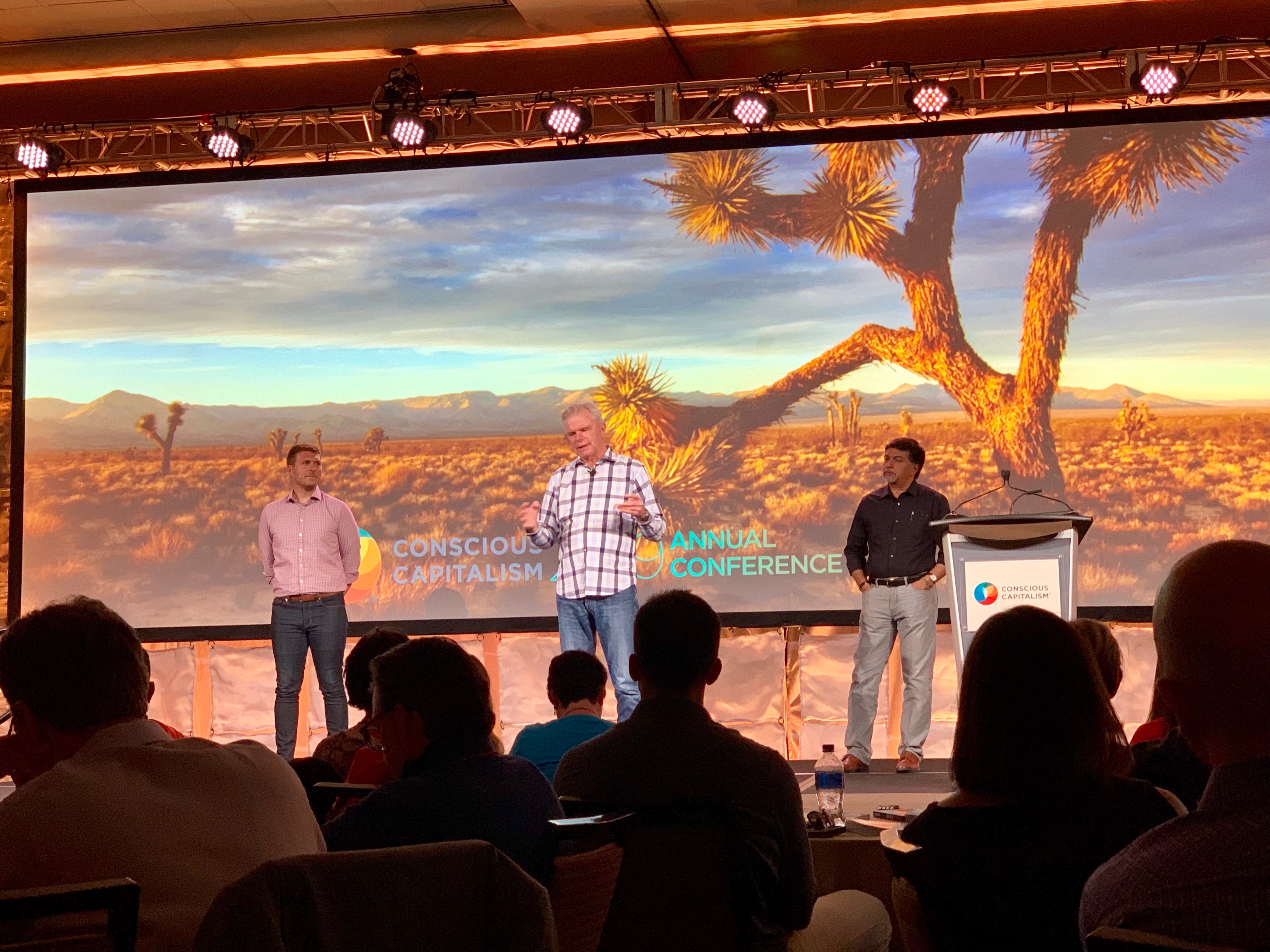
Endear Your Company to Your Stakeholders
This is just one statement in the Conscious Capitalism Credo:
“We believe that business is good because it creates value, it is ethical because it is based on voluntary exchange, it is noble because it can elevate our existence and it is heroic because it lifts people out of poverty and creates prosperity. Free enterprise capitalism is the most powerful system for social cooperation and human progress ever conceived. But we can aspire to even more.”
The “something more” is that we, as leaders, have to be intentional and conscious in how we lead. Conscious businesses value and care for EVERYONE in their ecosystem, motivating their stakeholders (customers, shareholders, employees, vendors/suppliers, and the community) by creating “win-win-win” outcomes for all who are impacted by their business.
Conscious businesses cannot exist without Conscious Leaders. Conscious Leaders focus on “we,” rather than “me” and a Conscious Culture fosters love and care and builds trust between a company’s team members and its other stakeholders.
So how can you tell if you are dealing with a Conscious Business? Here are some of the distinctive set of core values, policies, and operating attributes:
- They subscribe to a purpose for being that is different from and goes beyond making money. Businesses should exist for reasons beyond just making a profit. “We need red blood cells to live (the same way a business needs profits to live), but the purpose of life is more than to make red blood cells (the same way the purpose of business is more than simply to generate profits).” – R. Edward Freedman, University of Virginia Darden School of Business professor.
- They actively align the interests of all stakeholder groups, not just balance them. Instead of trading off the interests of one group versus those of another (for example, higher wages for employees versus higher profits for investors or lower prices for customers), they craft business models in which the objectives of each stakeholder can be met simultaneously and are in fact strengthened by other stakeholders. For example, Whole Foods Market captures this idea in its formal “declaration of Interdependence,” which acknowledges the idea that stakeholder groups constitute a family whose members depend on one another.
- Their executive salaries are relatively modest. In a typical year, Costco co-founder and former CEO Jim Senegal’s salary was $350,000, accompanied by a bonus of $200,000. By contrast, the average CEO of a comparable public company received $14.2 million in total compensation in 2012.
- They operate at the executive level with an open door policy. For example, when Honda has a big problem, it implements waigaya -temporary suspension of social protocols based on rank, thus making it possible for workers on the lowest rungs to personally present a proposed solution to the highest executives involved. Harley-Davidson has a similar policy, except less ceremonial: Any employee on any day has access to the highest offices in the company.
- Their employee compensation and benefits are significantly greater than the standard for the company’s category. For example, Trader Joe’s pay and benefits in the first year for full-time employees are double the U.S average for retail employees.
- They devote considerably more time than their competitors to employee training. One example, The Container Store’s first-year employees get an average of 263 hours of training versus the retail industry’s average of eight hours.
- Their employee turnover is far lower than the industry average. For example, Southwest Airlines’ employee turnover is half that of the other major airlines.
- They empower employees to make sure customers leave every transaction experience fully satisfied. For example, a Wegmans Food Market’s employee once sent a chef to a customer’s home to overcome a customer’s mistake and cook the Thanksgiving meal. (Yes, Wegmans employs chefs, some from five-star restaurants.)
- They make a conscious effort to hire people who are passionate about the company and its products. An example of this is Patagonia who tries to only hire people who are passionate about nature. Whole Foods Market tries to draw as many employees as possible from the ranks of “foodies.”
- By earning a larger share of customers’ hearts, they earn a larger share of customers’ wallets. Having that relationship and a customer knowing you have their back is key. Nordstrom, for example, is legendary for its commitment to outstanding customer service.
